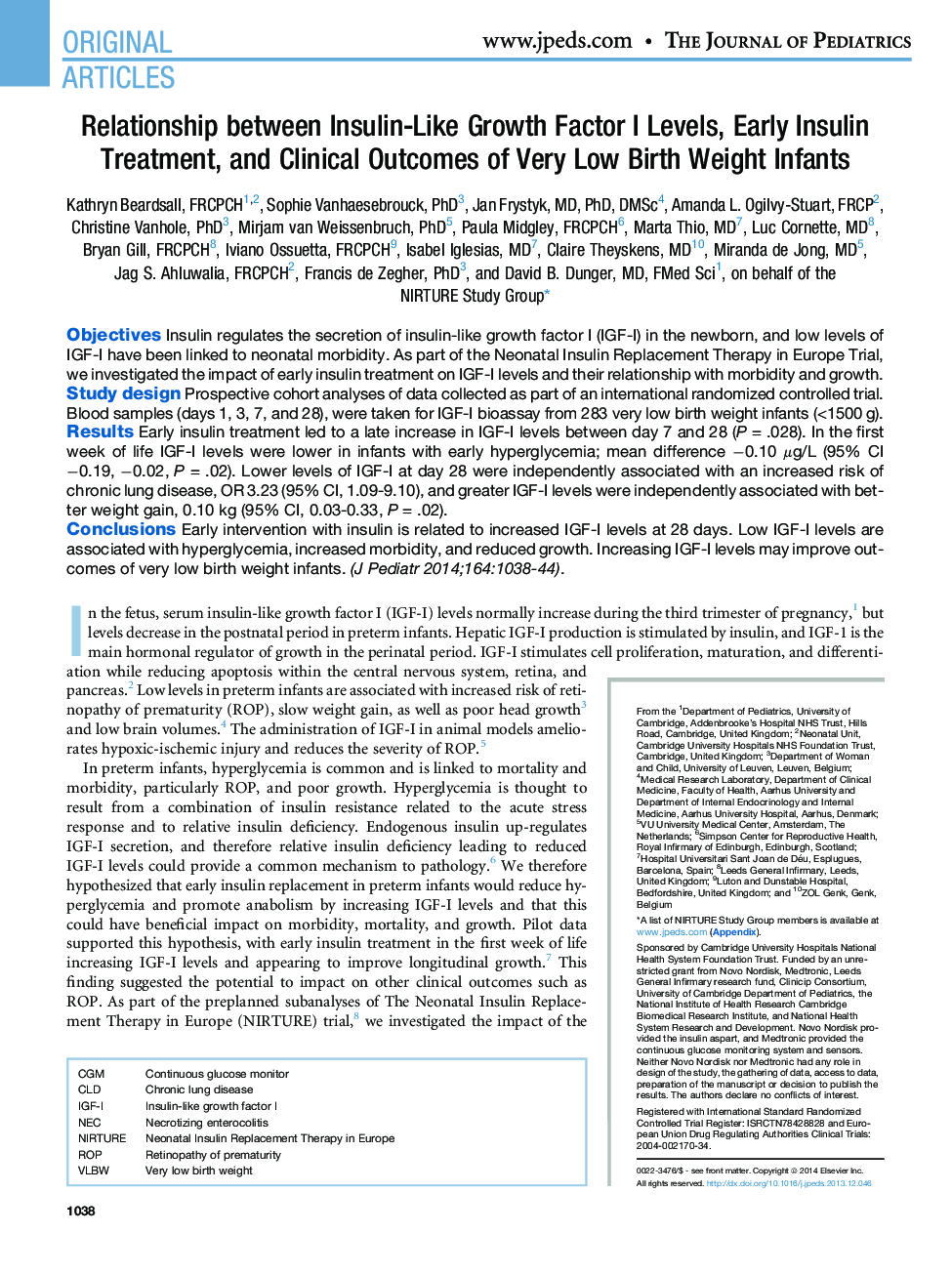| Article ID | Journal | Published Year | Pages | File Type |
|---|---|---|---|---|
| 6222145 | The Journal of Pediatrics | 2014 | 8 Pages |
ObjectivesInsulin regulates the secretion of insulin-like growth factor I (IGF-I) in the newborn, and low levels of IGF-I have been linked to neonatal morbidity. As part of the Neonatal Insulin Replacement Therapy in Europe Trial, we investigated the impact of early insulin treatment on IGF-I levels and their relationship with morbidity and growth.Study designProspective cohort analyses of data collected as part of an international randomized controlled trial. Blood samples (days 1, 3, 7, and 28), were taken for IGF-I bioassay from 283 very low birth weight infants (<1500 g).ResultsEarly insulin treatment led to a late increase in IGF-I levels between day 7 and 28 (P = .028). In the first week of life IGF-I levels were lower in infants with early hyperglycemia; mean difference â0.10 μg/L (95% CI â0.19, â0.02, P = .02). Lower levels of IGF-I at day 28 were independently associated with an increased risk of chronic lung disease, OR 3.23 (95% CI, 1.09-9.10), and greater IGF-I levels were independently associated with better weight gain, 0.10 kg (95% CI, 0.03-0.33, P = .02).ConclusionsEarly intervention with insulin is related to increased IGF-I levels at 28 days. Low IGF-I levels are associated with hyperglycemia, increased morbidity, and reduced growth. Increasing IGF-I levels may improve outcomes of very low birth weight infants.
